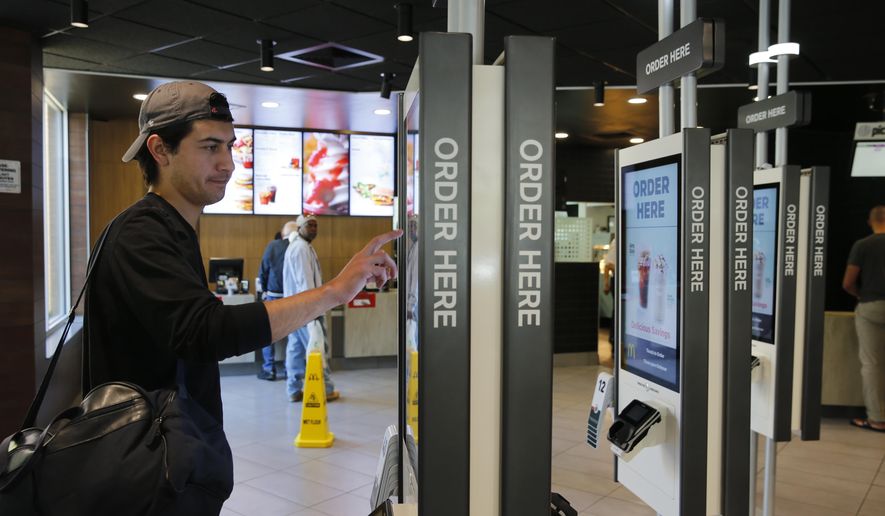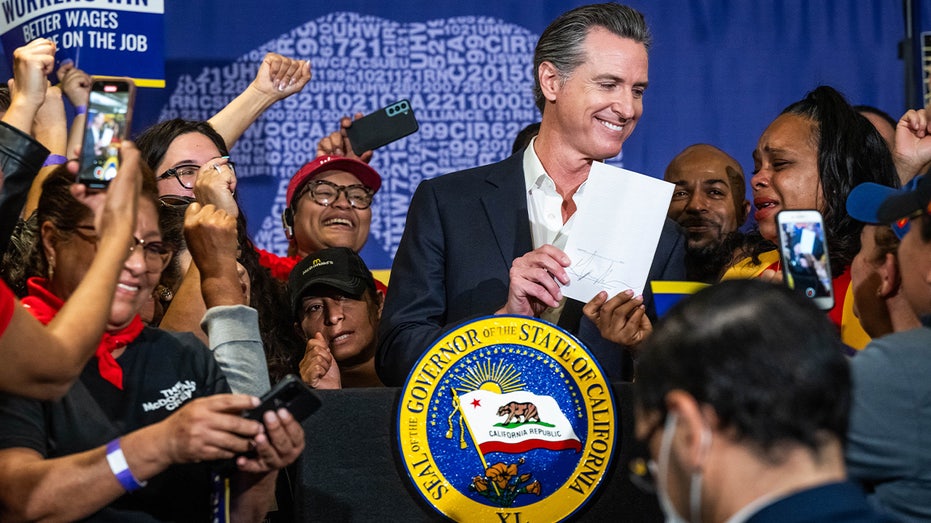Fast food chains find a way around $20 minimum wage: Get rid of the workers:
In response to recent minimum wage increases in California, fast food restaurants across the state are shifting to automation to get rid of wage-earning humans.
The move to making customers place orders at digital kiosks alleviates what owners say is the financial strain of rising labor costs after the minimum wage for the state’s fast food workers increased on April 1 from $16 to $20 per hour.
Harsh Ghai, a Burger King franchise owner who manages 140 outlets along the West Coast, is leading the transition to automation. He plans to introduce digital kiosks across all his restaurants within months — a drastic acceleration from his original timeline of five to 10 years.
“The majority of that is going to get absorbed in the inflation of our food costs,” Mr. Ghai told Business Insider. “So we’re not even compensating for most of the labor costs that we’re going to be experiencing with this legislation.”
He said about 25% of his restaurants already use the ordering kiosk, and he expects the rest to start using them within the next two months. --->READ MORE HERE
California's latest job-killing policy is more bad news for Golden Staters:
Hiking the minimum wage causes job losses, but it also increases prices
California’s list of public policy failures was already long, but hiking its minimum wage to $20 an hour for fast-food workers may belong at the top. The predictable fallout in lost jobs and higher prices is already being felt, and the flood of residents fleeing the state is poised to accelerate.
The Golden State is already home to some of the highest taxes and costs of living in the country, the consequences of failed government policies. A higher minimum wage is more of the same.
Consider California’s "green" energy policies that have created the highest utility rates in the nation. Instead of rolling back those mandates, it’s created a new one: surcharges on utility bills, making the middle class pay more, even if they don’t use more.
The overtaxing, overspending and over-regulating by the government in Sacramento has turned the state into such a basket case that 1.2 million more people left California than moved in over the last three years — by far the biggest loss of any state, beating New York by 35%.
Californians clearly don’t like the effects of these policies, but they just got more of them with the higher minimum wage law for fast-food workers. This particular policy provides a superb example of how disastrous economic ideas become law: wonderful rhetoric, terrible results.
The law was advertised as forcing "greedy" corporations to pay workers a "living wage." But businesses are not charities and cannot pay employees more than they produce, or they’ll go bankrupt. Employers pay taxes and other costs on top of an employee’s earnings, and at $20 an hour, many fast-food workers don’t provide enough value to justify the highest minimum wage in the country.
Not surprisingly, California’s fast-food companies have now frozen hiring, and some are already announcing mass layoffs. This is not a small cohort of workers: California is, at least for now, home to half a million fast-food workers. --->READ MORE HERE
If you like what you see, please "Like" and/or Follow us on FACEBOOK
here, GETTR
here, and TWITTER
here.



No comments:
Post a Comment